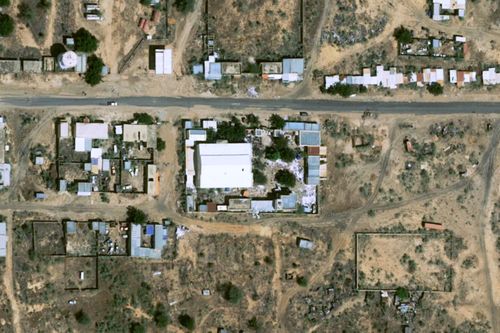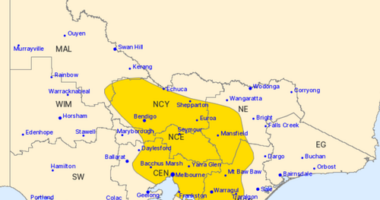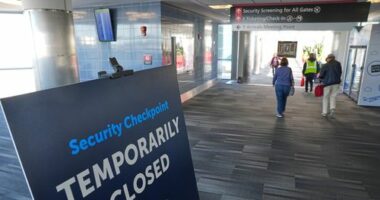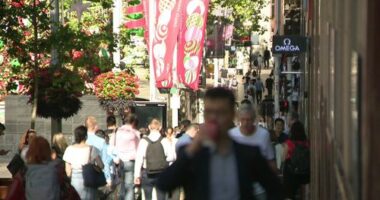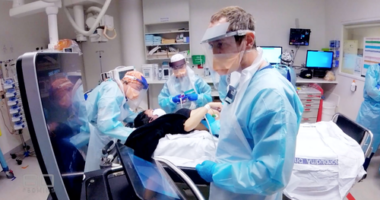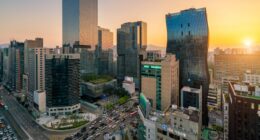Share this @internewscast.com
Warning: This article contains details that some readers may find distressing.
Over the weekend, Sudan’s paramilitary forces committed a brutal assault on a hospital in North Darfur, claiming the lives of hundreds, including patients, according to reports from the United Nations, displaced residents, and aid workers. Eyewitnesses have recounted the horrific events that unfolded.
The attack occurred at Saudi Hospital in the city of el-Fasher, where 460 patients and their companions were reportedly killed on Tuesday by members of the Rapid Support Forces (RSF), as confirmed by Tedros Adhanom Ghebreyesus, the director-general of the World Health Organization.
During their violent takeover of el-Fasher, RSF fighters allegedly went door-to-door, subjecting residents to beatings and gunfire, indiscriminately targeting men, women, and children, according to witness accounts shared with The Associated Press.

Among the casualties, many succumbed to gunshot wounds in the streets, some losing their lives while desperately attempting to escape the chaos, witnesses reported.
The conflict in Sudan, now spanning two years, has resulted in over 40,000 deaths—a number that rights groups believe to be significantly underestimated. This ongoing violence has triggered a dire humanitarian crisis, displacing more than 14 million people globally.
The capture of el-Fasher by the powerful Arab-led force raises fears that Africa’s third-largest nation may split again, nearly 15 years after oil-rich South Sudan gained independence following years of civil war.
Sudanese residents and aid workers revealed harrowing details of atrocities by the RSF after it seized the army’s last stronghold in Darfur following more than 500 days of siege.
Fighters from the RSF “cold-bloodedly killed everyone they found inside the Saudi Hospital, including patients, their companions, and anyone else present in the wards,” according to the Sudan Doctors Network, a medical group tracking the war.
“The Janjaweed showed no mercy for anyone,” said Umm Amena, a mother of four children who fled the city on Monday after two days, using a Sudanese term for the RSF.
RSF commander General Mohammed Hamdan Dagalo, who is sanctioned by the US, acknowledged what he called “abuses” by his forces.Â
In his first comments since the fall of el-Fasher, posted Wednesday on the Telegram messaging app, he said an investigation was opened. He did not elaborate.
The Associated Press has not been able to independently confirm the hospital attack and death toll.

‘It was like a killing field’
Mini Minawi, the governor of Darfur, shared a video online that purported to show RSF fighters inside the Saudi Hospital.Â
The minute-long footage shows bodies lying on the floor in pools of blood. A fighter fires a single shot from a Kalashnikov-style rifle into a lone man sitting up, who then slumps to the floor. Other bodies could be seen outside.Â
The AP could not independently verify the date, location or condition under which the video was recorded.
Amena was among three dozen people, mostly women and children, who were detained for a day by RSF fighters in an abandoned house close to the Saudi Hospital in el-Fasher.
The AP spoke with Amena and four others who managed to flee el-Fasher and arrived exhausted and dehydrated early on Tuesday in the nearby town of Tawila, about 60 kilometres west of el-Fasher, which already hosts more than 650,000 displaced.
The UN migration agency said more than 36,000 people have fled el-Fasher, mostly to rural areas around it, since Sunday.
UN refugee agency official Jacqueline Wilma Parlevliet said the new arrivals told of widespread killings motivated by ethnic and political differences, including reports of people with disabilities shot dead because they were unable to flee, and others shot as they tried to escape.

“It was like a killing field,” Tajal-Rahman, a man in his late 50s, said over the phone from the outskirts of Tawila.Â
“Bodies everywhere and people bleeding and no one to help them.”
Both Amena and Tajal-Rahman said RSF fighters tortured and beat the detainees and shot at least four people on Monday who later died of wounds. They also sexually assaulted women and girls, they said.
In Tawila, a hospital run by Doctors Without Borders received many patients since October 18 suffering from injuries related to bombings or gunshots, according to Giulia Chiopris, a pediatrician at the hospital.
She said the hospital also received a high number of malnourished and severely dehydrated children, many of them unaccompanied or orphaned, who had fled el-Fasher.
“We are seeing a lot a lot of cases of trauma related to the last bombing and a huge number of orphans,” she said.
She recalled receiving three young siblings, ranging in age from 40 days old to four years, whose family was killed in the city. They were brought to the hospital on Monday night by strangers, she said.

Satellite imagery suggests mass killings
In a report late on Tuesday, the Yale School of Public Health’s Humanitarian Research Lab said that RSF fighters continued to carry out mass killings since they took over el-Fasher.
The report, which relied on satellite imagery from Airbus, said it corroborated alleged executions and mass killing by the RSF around the Saudi Hospital, and at a detention centre at the former Children’s Hospital in the eastern part of the city.Â
The AP accessed and analysed the same imagery, seeing objects and red stains on the ground at the sites that the lab identified as blood and bodies.
The lab also said that “systematic killings” took place in the vicinity of the eastern wall, which the RSF built outside the city earlier this year.
Sheldon Yett, the UNICEF representative to Sudan, said in an interview that the situation in el-Fasher was “an absolute catastrophe”, with thousands of children already suffering from disease and famine before the takeover of the city by the RSF.
“Now it’s hell on Earth with lots of guns,” Yett said.
Aid groups said a death toll has been difficult to determine since RSF overran el-Fasher, given a near communication blackout.
The report from Yale said satellite imagery can’t show the true scale of the mass killings, and that an estimated death toll is likely an undercount.
Before the latest bout of violence, some 1850 civilians were killed in North Darfur, including 1350 in el-Fasher, between January 1 and October 20 this year, according to UN spokesperson Farhan Aziz Haq.

Footage of the attacks triggered a wave of outrage around the world. France, Germany, the United Kingdom and the European Union all condemned the atrocities.
Mohamed Osman, Sudan researcher with Human Rights Watch, said that footage coming out of el-Fasher “reveals a horrifying truth: the Rapid Support Forces feel free to carry out mass atrocities with little fear of consequences”.
“The world needs to act to protect civilians from more heinous crimes,” he said.
Massad Boulos, the US senior adviser on Arab and African affairs, condemned the attacks.
“The deliberate targeting of vulnerable populations through acts of violence and retribution is both abhorrent and unacceptable,” wrote Boulos, a Lebanese-American businessman who is the father-in-law of President Donald Trump’s daughter Tiffany.
“We acknowledge RSF leadership’s recent statements on civilian protection, humanitarian access and accountability, but words alone will not save lives. These commitments must urgently be turned into concrete actions on the ground to alleviate the suffering of the Sudanese people.”
Senator Jim Risch, chairman of the US Senate Foreign Relations Committee, on Tuesday denounced the RSF attacks on the city, and called for it to be designated as a foreign terrorist organisation.Â
“The RSF has waged terror and committed unspeakable atrocities, genocide among them, against the Sudanese people,” he wrote.
Australian authorities, meanwhile, have urged citizens to not travel to the country and to leave as soon as possible â if it’s safe.
“Do not travel to Sudan due to the high threat of armed conflict, civil unrest, terrorism and kidnapping,” a Smartraveller statement said.Â
“If you’re in Sudan, you should depart immediately if it’s safe to do so. There may be commercial departure options from Port Sudan and Port Suakin. Khartoum International Airport is closed.Â
“If you remain in Sudan, be prepared to shelter in place for an extended period.”
